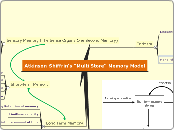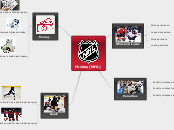Autobiografical Memory/ Working Self (Conway)
Happiness Subgoals being achieved Continue with plan, modifying as
necessary
Sadness Failure of major plan or loss of Do nothing/search for new plan
active goal
Anxiety Self-preservation goal threatened Stop, attend vigilantly to environment
and/or escape
Anger Active plan frustrated Try harder, and/or aggress
Disgust Gustatory goal frustrated Reject substance and/or withdraw
Eperiments
Crombag
Loftus
McLeod: Depression / Cancer Dot Mother Dot
Conway: Autobiographical Memory
Constructiveness?
No
Flashbulb
Yes
McLeod: Cancer Dot/ Mother Dot
Loftus: How fast were the cars when they smashed into each other
Crombag: Did you see the tv film of the moment the plane crashed
Hackman: PTSD patient with wrong memory
Thought was fire - but really smoke
General Concept
Problems
Too much emphasis on goals / also values
Role of emtotions: Though in line with Oatley Johnson-Larid, not all autobiografical are emtoional
Goal Stack vague
just goals or self relevant goals
Working Self vague
ist it just goals or comlete current cognitive activity
3. therfore raised accessibility
2. ... and self-conceptions
1. encode daily experice on the basis of current goals and relevance to the self
not allways conscious to us
Role
Autobigografical retreival
How/ Why?
Rubin: Novelty theory: periods of rapid change, better encoding, better accibiltiy
Conway: Relevance for self
Reconstruction from generic structures: i,e. Our House: not episodic but generic
Mostly unintentional retrieval from spec.cues (i..e.smell)
Memory formation
>>If important for self_ Then Store<<
Goal related experience: emotions hint to conflicting goal
Ive done it and remember how
I failed and I remember how
Self defining moments
Goal Stack: (as CE in Working Memory)
Organisation of ABM
Recall either true or constructed: car smashed into (Loftus)
Recalled by cues rather than reconstructed
Doesnt fit goal hierarchy --> Memory not integrated into ws
Lack of integration leads to retention: see effect of emotion on memory
Sensory Perceptionally Charged
Intensly emotional memory
burned into m.
Fade unless integrated in Semantic Knowledge
Sensory charged: little videos
In Episodic Memory
Life Periods
Also in Semantic Memory
Hierarchic
Working self
Attitudes
Standards
Values /Beliefs= important for Goals
Goals
Goal Hierachy
Woring self often determins what is attended to--> remembered
Auto M. often reinforce our concept of Self= see memories in light of our self concepts
Autobiogrphical Memories
Forms
Flashbulb Memories
Brown & Kulik coined the term
Normal / recent memory
Time period related (Later Infancy, Adolencence to young adult )
Goal Related
Working Self
Emotional (Oatley + Johnson Laird)
PTSd
Organization: Hierarchical
Greater Semantic part
Less sensory rich
General Events
Life Periods
Specific Episodes
More sensory rich
Tulving: Episodic might be embedded in semantic memory
Memories from our lives are:
Our knowledge of our lives
LTM
Procedural
Declarative
Episodic
Semantic
Traumatic
PTSD
Consequnce
Constant reexperincing through cues: As it cant be integrated into working self
Hyperarousal: Constantly alert for trigger cues
Emotional
Oatley & Johnson-Laird: Role of emotion is to signal that ongoing behaviour should be interrupted to take account of a conflicting goal --> cant go on like that
Life Changing
Imoportant
3 Features
Childhood Amn(0-5)
But memories at the time rich and diverse
Lack of language dev.
Interstingly girls remember earlier stuff vs. boys
Lack of emotional dev.= no social awareness
Freud: Supression of harmful stuff
But pleasant memories aren't retrieved as well
2 Reminiscence bumps
Least: Childhood (6-8)
Rubin: Memories recalled from the period of the RB are more accurate
Fewer Adolescence to Adulthood (17-27)
Recency: Most Now
Like recency effetc of WM
Why
Changes in self concept and goals (WS): older stuff not relevant anymore
Decay and inference of older memory
Rubin: collated the results of three such studies.
Explanations:
Conway: Explicit: Life Themes and formation of identity
Rubin: Implicit: "Novelty Experiences": because of: period of rapid change - dominated by novel experiences - more fully engage encoding processes, and so become more accessible
encoding abilites at their peak (10-30!)
More effort made to remember especially from this time
Preference because those mem. are more pleasant
First Timers
Not Restricted to "marriage" or "18th birthdays"
Emotional charging
Less emotional event are also recalled









